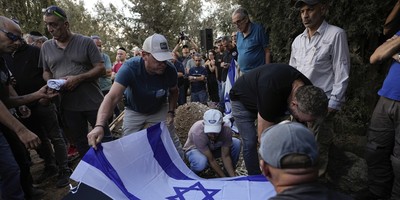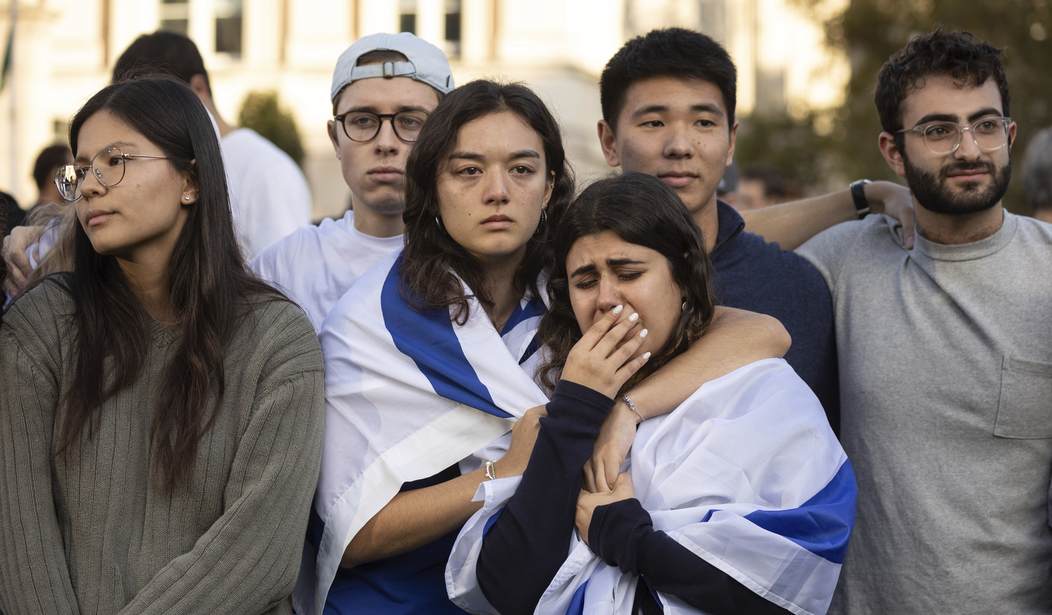I came home early Monday morning from special pre-Passover prayers in which it’s customary for first born men and boys to take part, recognizing that if God had not liberated the Jewish people from slavery in Egypt 3326 years ago, we might still be enslaved and first born boys would have been murdered, thrown into the Nile river. I am a first born and this year, that reality then, and our reality now, have never been more vivid.
I came into the house to news of a terrorist attack in Jerusalem, following news this week of several other terrorist attacks, and antisemitic riots on the verge of pogroms at Columbia University.
This all takes place in the context of Israel at war since October 7, not just six months of war, but the fist time that Israel has been at war during Passover since 1948. This takes place in the wake of the inhuman Hamas massacre of 1200 human beings on October 7, more than 250 kidnapped of whom 133 remain in captivity, and many of those presumed dead. This takes place while the country is still grieving for those murdered on October 7, more than 260 soldiers who have been killed since the ground operation began there, and thousands injured, and families of victims and survivors still grieving. This takes place with Jews across the US and throughout the diaspora experiencing overt and hostile antisemitism at levels not seen since the Holocaust. And this takes place as we begin the first Biblical festival since the massacre which took place on the last day of the last Biblical festival.
While things are relatively quiet at the moment in terms of threats from Hezbollah in Lebanon and Iran itself, which launched the largest attack against Israel using ballistic missiles in history, things are on edge. The operative words are “relatively quiet.” Hezbollah has been firing rockets and drones at Israeli communities, several times a day. As I am writing, the Red Alert app on my phone sounded, reporting attacks on five Israeli communities, one of which was “successfully” hit by a Hezbollah weapon last week, injuring more than a dozen and killing one. This is the norm with which we are beginning our Festival of Freedom.
Recommended
There have been reading many commentaries about how this Passover is different from all other Passovers, taking off on the question asked during all traditional Passover seders, “Why is this night different from all other nights?” This is the cornerstone of explaining the Exodus story and how and why we celebrate as we do. This year, Passover will be different from all other Passovers in our lifetime. It’s something I discussed in the recent Inspiration from Zion podcast, however just scratching the surface.
We left an empty seat at our Seder table in solidarity with those who are not with us this year, nearly 1500 dead and 133 hostages still in captivity in Gaza. It’s reminiscent of something done for years at the height of the movement to free Jews from the Soviet Union in the 1970s and 1980s. There’s a special prayer for the hostages from Israel’s Chief Rabbi that we’ll recite at the Seder (abbreviated here) as well:
“May it be the will of our Father in Heaven who took His nation Israel out of Egypt, that he should bless and save our brothers and sisters the hostages… Strengthen their souls and faith, protect them from all harm and sickness… and send them a speedy redemption… from captivity to freedom, returning them safely to their families and homes.” (Please feel free to contact me for a full PDF edition.)
The tradition is that we are to experience the Seder as if we were slaves experiencing redemption. The generation of Jewish slaves experienced the 10 Plagues and God’s might. This year we have also experienced miracles, despite the suffering and threats. Most recently was the shooting down of 99% of the hundreds of Iranian ballistic and cruise missiles, and suicide drones. Israel’s response was targeted and un-intercepted, indicating that it has the ability to hit any Iranian target, at any time. These are nothing short of miraculous.
Another pillar of the Seder is recitation of the statement, often sung, that “For not only one (enemy) has risen up against us to destroy us, but in every generation, they rise up to destroy us. But the Holy One, Blessed be He, delivers us from their hands.” Israel and the Jewish people have experienced this literally in every generation, but none more so than now.
It’s traditional to drink four cups of wine, each with its own unique symbolism. However it’s also traditional to spill off a drop of wine for each of the 10 Plagues, reducing our joy by recognizing that average Egyptians suffered. In my conversation with Rabbi Ken Spiro, we wondered whether the generation of the Exodus which had experienced the suffering of slavery in Egypt, reprimanded by God for celebrating the drowning of the Egyptian army in the Sea, were wrong. This year, with the horrors of October 7 still fresh, it will be harder to do so as well, albeit knowing that Israel has gone above and beyond to reduce civilian casualties, even while the terrorists are embedded among and hiding behind them.
As we go into Passover 2024, the threats are real, and for many of us, it is scary. Friends are recounting which of their children are being called back up into reserves as we feel a sense that renewed combat against Hamas in Gaza, and possibly against Hezbollah in Lebanon, is imminent. Despite how real the threats are, our faith remains strong.
In the Exodus, God showed his might to the biggest and strongest nation on earth at the time. Today, Israel is ridiculed and beleaguered and attacked by enemies near and far. It’s a fearful yet joyous season, experiencing Passover as we never have in our lifetime.

























Join the conversation as a VIP Member